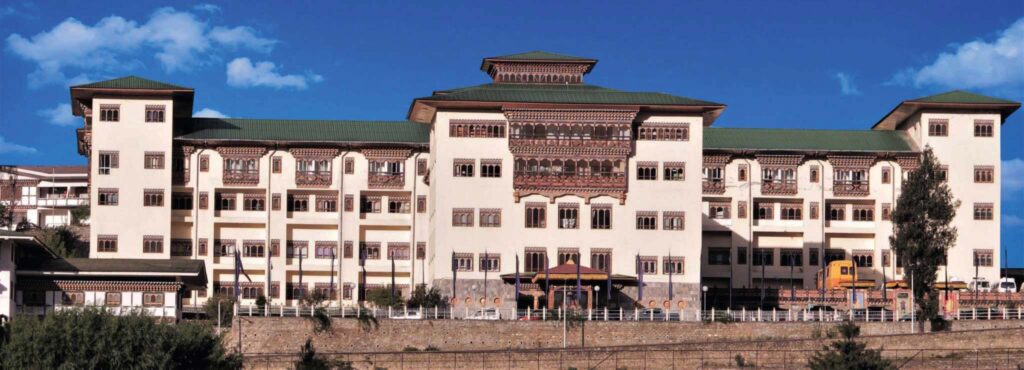
Health Care


Healthcare in Bhutan is Free primarily provided through a government-funded system that strives to ensure universal access to basic health services for all Bhutanese citizens. It reflects the country’s commitment to ensuring equitable access to quality healthcare services for its population. While challenges exist, Bhutan continues to invest in healthcare infrastructure, human resources, and policy reforms to improve health outcomes and achieve universal health coverage in alignment with its development goals and Gross National Happiness (GNH) principles.
Here’s an overview of healthcare in Bhutan:
1. Healthcare System
- Government Responsibility: The Ministry of Health (MoH) is responsible for overseeing healthcare delivery and policy formulation in Bhutan.
- Universal Health Coverage: Bhutan aims to provide universal health coverage, emphasizing equitable access to healthcare services across the country.
2. Healthcare Infrastructure
- Hospitals and Health Centers: Bhutan has a network of hospitals, Basic Health Units (BHUs), and outreach clinics distributed across urban and rural areas.
- Referral System: Healthcare facilities are organized into a referral system, with primary health centers referring patients to district hospitals and specialized treatment centers in regional hubs like Thimphu and Phuentsholing.
3. Services Offered
- Primary Healthcare: Basic health services, including preventive care, maternal and child health, immunizations, and treatment of common illnesses, are provided at BHUs and outreach clinics.
- Specialized Care: District hospitals and regional referral hospitals offer specialized services such as surgery, obstetrics, gynecology, pediatrics, and chronic disease management.
- Health financing
- Government Funding: Healthcare in Bhutan is predominantly funded by the government through budget allocations.
- Free Services: Basic healthcare services, including consultations and essential medicines, are provided free of charge to Bhutanese citizens at government-run health facilities.
- Health Insurance: The government is exploring options for health insurance schemes to enhance financial protection and sustainability in healthcare financing.
- Traditional Medicine
- Integration: Bhutan integrates traditional medicine (Sowa Rigpa) with modern healthcare, recognizing the cultural and historical importance of traditional healing practices.
- Bhutanese Institute of Traditional Medicine: The Institute of Traditional Medicine Services (ITMS) offers training, research, and healthcare services in traditional medicine alongside allopathic treatments.
7. Public Health Initiatives
- Disease Prevention: The MoH implements public health programs focused on disease prevention, health promotion, sanitation, and nutrition.
- National Immunization Program: Bhutan conducts routine immunization campaigns to protect against vaccine-preventable diseases.
8. Healthcare Challenges
- Geographical Challenges: Remote and mountainous terrain poses challenges for healthcare delivery, including access to healthcare facilities and emergency services.
- Human Resources: Shortages of skilled healthcare professionals, particularly in rural areas, impact service delivery and patient care.
- Healthcare Financing: Ensuring sustainable financing for healthcare services, including infrastructure development and procurement of medical supplies, remains a challenge.
9. Future Directions
- Health Sector Reform: Bhutan continues to prioritize health sector reform to strengthen primary healthcare, improve service delivery, and enhance health outcomes.
- Technology and Innovation: Increasing adoption of telemedicine and digital health technologies to expand access to healthcare services, especially in remote areas.
- Collaboration and Partnerships: Collaboration with international organizations, donor agencies, and development partners supports capacity-building initiatives and healthcare system strengthening efforts.
Related
- Accomodation
- Bhutan Tourism Policy
- Businesses
- Currency
- Drink & Beverage
- Education
- Festivals
- Food & Restaurant
- GNH – Gross National Happiness
- Health Care
- How to get to Bhutan
- Language
- Media
- Night life
- Politics
- Population
- Religion
- Telecommunication
- Tour Booking info
- Transportation
- Weather
Need Assistance?
Call Us : +975-17351324
+975-17495729
Email Us : adbhutantours@gmail.com
Send your Queries
